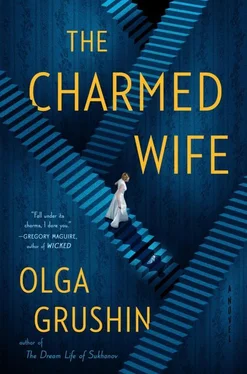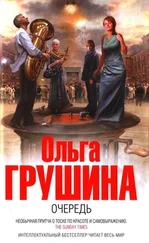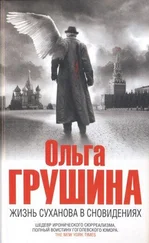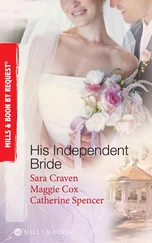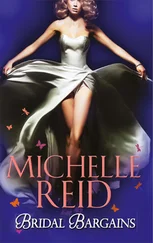It floods back, it all floods back—the fairy godmother, the glass slipper, the blue-and-white palace, the chatty teapots, my friends the mice, the vile potions, the treacherous mirror, the nettle shirts, the witch, the curse. And as I stand in the middle of the dim foyer of a rent-controlled building in the lower reaches of Manhattan, I hold the immensity of both realities in my mind, and I say to myself: Perhaps all of this is the same story, only seen from two different angles, like one of those trick paintings—birds if you look from one side, horses if from the other, both if you move far enough away to take everything in at once.
Because maybe, maybe, I simply could not face the darker facts of my marriage—my discomfort at being a rich man’s idle wife, my constant guilt over not doing enough for my children, my postpartum depression, my brief addiction to pornography, my longer addiction to prescription pills, my unacknowledged attraction to one of Roland’s underlings, my obsessive spying on my husband along with my pathetic attempts to explain away his philandering, to shift the blame from him at all costs, to myself, to his women, to anyone and anything, my growing desperation to forget the bitter truths of so many awful, shameful moments—oh, such layers of self-deception I practiced, possibly out of some nebulous notion of ideal love, but just as possibly, only so I might go on living with my own cowardly choices… And all the years I spent sifting through, shaping, reshaping the past, trying to pinpoint the exact moment at which our marital happiness dimmed, embroidering upon the myth of our perfect romantic beginnings—until the kind old Roland Senior died and I found his papers and learned of the clause stipulating that Roland Junior needed to marry before the age of twenty-five in order to come into the ownership of his trust. Then, at long last, our screaming confrontation, and my therapist trying to dissuade me from drastic measures, and my subsequent visit to a lawyer who frightened me so, a shrill, man-hating witch—or so she first appeared to my eyes—droning at me, “Law is not strictly a science, it’s more of an art,” her professionally suppressed yet palpable excitement at the realization that my ex-husband-to-be was the wealthy heir of a windowsill empire, the first mention of the word “divorce” striking me with the force of a lightning bolt blazing out of the dark stormy sky… They say, do they not, that divorce is akin to insanity, so perhaps all these other truths I now remember are only stories I once told myself to keep sane, to mask the crude ugliness of things ending, to transform the chaos of pain into some semblance of order, of higher sense. And maybe that is what all fairy tales are, at their heart: generations of unhappy women throughout history who lost their mothers to disease, fathers to violence, daughters to labor, sons to hunger, who were beaten, abandoned, exploited, orphaned, collectively trying to dream themselves into a life that made sense, spinning tales of man-eating ogres, crystal shoes, poisonous apples, and true love—thinly veiled metaphors of everything gone wrong and everything hoped for on lonely winter nights.
And then again, just as likely, it might be the other way around. Maybe, once upon a time, I was indeed an ordinary fairy-tale princess, like many other such princesses, a princess with her cardboard love for a cardboard husband, living a cardboard life in a cardboard palace, stuck within the confines of a predetermined tale, going through predetermined motions, a fate akin to death, a fate worse than death, yet all the while, in my gilded porcelain teacup, in my beautifully curled blond head, dreaming of another life, of another place—a place full of surprises, full of choices, a place I could sense, glimpse, almost touch now and then, in my rare moments of non-cardboard, transcendent emotion, whether genuine joy or genuine pain. Perhaps, then, when my heart was kindled once and for all by a real love for a real child, for two real children, I managed to do something truly magical—to break through the theatrical decorations, to will myself out of my one-dimensional prison and into the three-dimensional world, this world around me, this life, this city, this moment.
And whatever the truth—whether once upon a time I was a wretched housewife distracting myself with fantasies to while away my empty days or a depressed princess battling the tedium of stale fairy-tale coupledom—I have never felt more clearheaded, more awake, more present, more ready to jump into the thick of life, than I do now, and no other place has ever seemed more thrilling, more unpredictable, more crackling with possibilities—with real magic—than this dim lobby with an old cranky elevator and a blind mouse, before which I stand amazed, overwhelmed, holding both lives superimposed in my mind, one balancing the other.
The elevator thuds as it arrives, and its door shudders and creaks. My next-door neighbor, an ancient lady wrapped in bundles of gray and brown shawls, makes her unsteady way out into the lobby, and sees me, and stops.
“Are you all right, dearie?”
“I… yes, I… I thought I saw something run into that corner.”
Together we peer into the shadows.
“Ack,” she says. “Must be rat.” Her strong accent has a whiff of the Old World about it, strange places, dark stories. “Shameful, state of this hovel. Someone should call exterminator. Good day to you, dearie.”
She sounds like a fairy-tale witch, I think, amused; looks like one, too, with her hooked nose and the warts on her chin. Mesmerized, I follow her precarious progress toward the front door, then, shaking myself awake, press the elevator button. As I step inside the poorly lit box, I am touched by a fleeting feeling that I was thinking something important, maybe even something vital, a mere moment ago, but the thought remains uncaptured. I may remember it later, I tell myself. For now, there is so much to do: the children are coming tomorrow, tomorrow, there is no time to waste.
My place is small, but I spend hours cleaning it until it shines, cleaning late into the night, cleaning as I have never cleaned anything in my long life of cleaning. When every last doorknob is gleaming, every last dust bunny banned, I sit down by an open window and look at my city, the magical city that never sleeps. I look at the wide night sky with a scattering of pallid, urban stars, and the shining rivers of headlights streaming below, and lamps coming on and blinking out in other windows, illuminating or concealing other lives, other stories—and only a stone’s throw away, there are dogs, and sirens, and boys, and flowers, and women young and old, and lovers, and beggars, and poets, and pretzel carts, and wine bars, and bookshops, and laughter, and sadness, and triumphs, and losses, and kisses, and fights, and miracles, and quests, and discoveries, and heartbreak, and life, life, life.
That night, when I go to bed, I dream of being a witch. I dream of being a sleeping beauty. I dream of being a gingerbread house. I dream of being a prince. I dream of being a falling star, a rushing wind, a rustling forest. When I wake up in the morning, the sun is pouring through my window, and everything looks unexpected. Perhaps, I think, I have finally dreamed myself into a new story, a story with no commonplaces—an entirely different, as yet unknown story that will be a new beginning after the familiar end.
The Beginning
As a child, I loved the traditional fairy tales—Alexander Afanasyev, the Brothers Grimm, Charles Perrault. As an adult, I questioned them. Hundreds of stories, read and reread, and years of wondering about them have formed the foundation of this book. My indirect debts are simply too many to acknowledge, but in the course of doing research, I was influenced by many fairy-tale scholars, interpreters, and storytellers, most notably A. S. Byatt, Italo Calvino, Angela Carter ( The Bloody Chamber is a masterpiece), Robert Coover, Neil Gaiman, George MacDonald, Cristina Bacchilega, Ruth Bottigheimer, Maria Tatar, Marina Warner, and Jack Zipes.
Читать дальше
